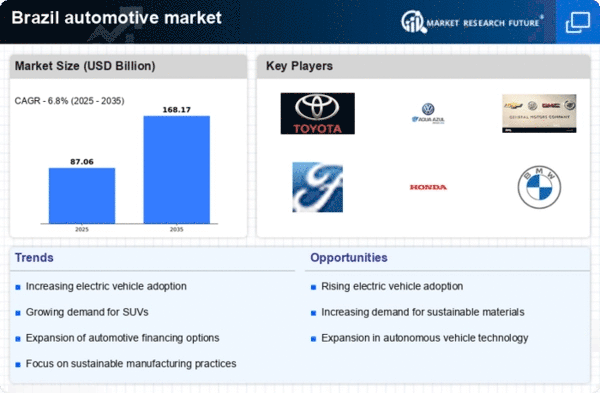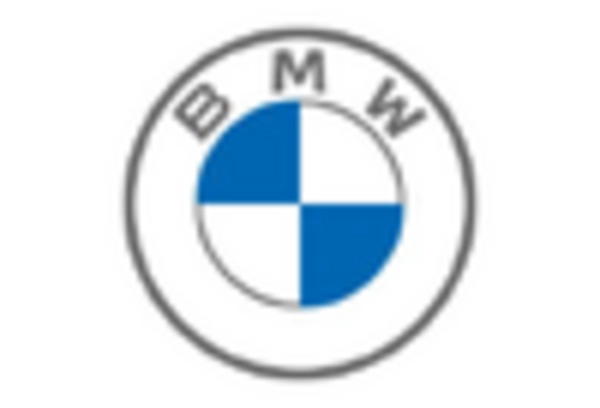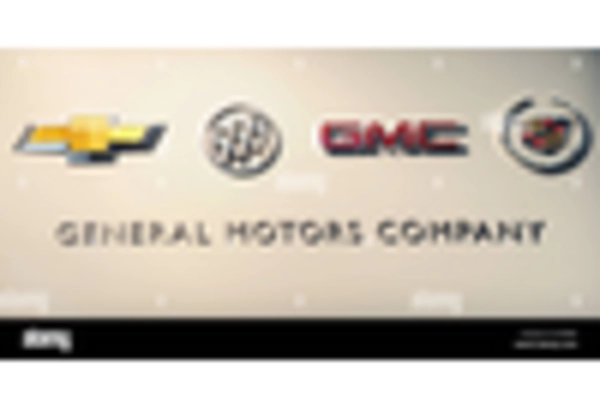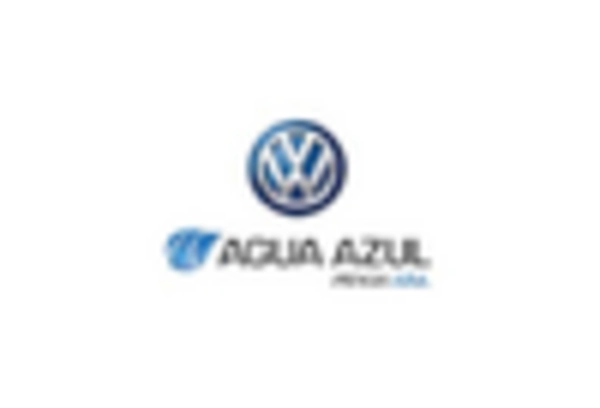Advancements in Automotive Technology
Technological advancements are significantly influencing the automotive industry market in Brazil. Innovations such as autonomous driving systems, advanced driver-assistance systems (ADAS), and connected vehicle technologies are becoming increasingly prevalent. In 2025, it is projected that the market for connected vehicles will expand by 25%, driven by consumer demand for enhanced safety and convenience features. Furthermore, the integration of artificial intelligence and machine learning into vehicle systems is expected to improve operational efficiency and user experience. These technological developments not only enhance vehicle performance but also contribute to the overall growth of the automotive industry market in Brazil.
Growing Demand for Sustainable Mobility
The automotive industry market in Brazil is experiencing a notable shift towards sustainable mobility solutions. This trend is driven by increasing consumer awareness regarding environmental issues and the need for cleaner transportation options. In 2025, it is estimated that the demand for electric vehicles (EVs) will rise by approximately 30%, reflecting a growing preference for eco-friendly alternatives. Additionally, government incentives aimed at promoting the adoption of EVs, such as tax reductions and subsidies, further stimulate this demand. As a result, manufacturers are compelled to innovate and invest in sustainable technologies, thereby reshaping the automotive industry market landscape in Brazil.
Regulatory Changes and Emission Standards
Regulatory changes in Brazil are shaping the automotive industry market by imposing stricter emission standards. The government is actively working to reduce greenhouse gas emissions and promote cleaner technologies. By 2025, it is expected that new regulations will require a 20% reduction in emissions from new vehicles. This shift compels manufacturers to invest in research and development of low-emission and electric vehicles. Compliance with these regulations not only enhances the sustainability of the automotive industry market but also aligns with global trends towards greener transportation solutions.
Infrastructure Development and Urbanization
The rapid urbanization in Brazil is a critical driver of the automotive industry market. As cities expand and populations grow, the demand for efficient transportation solutions increases. In 2025, urban areas are expected to account for over 85% of the total vehicle sales in Brazil, highlighting the importance of infrastructure development. Investments in road networks, public transportation systems, and charging stations for electric vehicles are essential to support this growth. Consequently, the automotive industry market must adapt to the evolving urban landscape, ensuring that vehicles meet the needs of urban dwellers while promoting sustainable practices.
Economic Growth and Rising Disposable Income
Brazil's economic growth is positively impacting the automotive industry market. As the economy continues to recover, rising disposable incomes enable consumers to invest in personal vehicles. In 2025, it is anticipated that vehicle ownership will increase by 15% as more individuals can afford to purchase cars. This trend is particularly evident in emerging middle-class segments, which are driving demand for both traditional and electric vehicles. Consequently, automotive manufacturers are focusing on producing a diverse range of models to cater to varying consumer preferences and budgets, thereby enhancing their competitiveness in the automotive industry market.
















